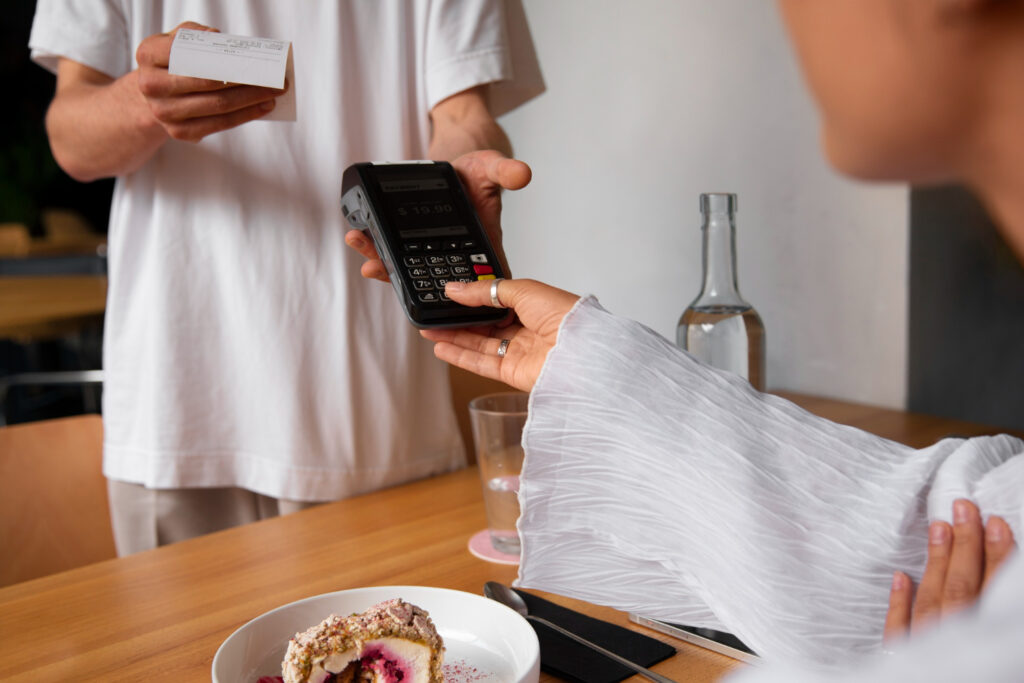
By Bella Zhang June 26, 2025
In the fast paced world of food service, bakeries have a special place. They open before dawn, take payments all day and in some cases take orders online till late at night. This extended operating window makes bakeries more vulnerable to payment fraud. While many focus on recipe consistency and customer satisfaction, payment security is just as important.
Many small and medium sized bakery owners may not realize how important 24/7 fraud prevention is until an incident hits their cash flow or customer trust. With cyber threats and digital payments on the rise it’s no longer enough to only monitor transactions during business hours. Continuous payment monitoring is now a must.
The Growing Risk Landscape for Bakeries
For modern bakeries, technology has unlocked new sales opportunities. Whether it is through e-commerce portals or mobile card readers, bakers today can serve a broader market than ever before. However, this also comes with exposure to evolving payment fraud tactics.
Increase in Online and Mobile Orders
The demand for online orders has grown rapidly, especially for customized cakes and event bookings. This growth brings added complexity and the need to ensure secure online payment systems. If a fraudster gains access to these transactions, it can result in chargebacks, loss of revenue, and reputational damage.
Impact of Delayed Fraud Detection
When fraud goes unnoticed during off-hours, bakery owners often discover discrepancies too late. By the time a fraudulent transaction is identified, the damage is already done. The delay not only affects finances but also the operational routine, including fulfilling genuine orders that might get mixed up with suspicious ones.
Limited In-House Security Resources
The majority of bakeries are small enterprises that lack the resources for a comprehensive IT security team. Lacking specific resources for payment risk oversight, they turn into vulnerable targets. Hackers usually seek out weak payment systems that have inadequate or outdated security measures.

What Is Payment Risk Monitoring?
Payment risk monitoring refers to systems and processes that continuously analyze payment transactions for signs of suspicious or fraudulent activity. These systems rely on algorithms and historical data to identify behavior that falls outside the norm.
Features of Payment Risk Monitoring Tools
Such tools often include real-time alerts, unusual transaction pattern identification, geolocation verification, and even AI-based predictive fraud detection. When well-integrated, they can notify the bakery owner or merchant service provider instantly.
Why 24/7 Monitoring Matters
Fraud does not adhere to regular office hours because a large number of online orders take place after business hours, particularly for events or weekend pickups. Therefore, bakery fraud support needs to go beyond closing time. The system should identify and either block or request manual confirmation before processing an order that looks suspicious at two in the morning.
How 24/7 Fraud Alerts Work
Advanced fraud detection platforms offer 24/7 fraud alerts by integrating directly with your POS or payment gateway. These alerts can be sent via SMS, email, or even push notifications to a dedicated app.
Real-Time Fraud Identification
Real-time alerts ensure that bakery owners or managers can take action immediately. For instance, if a customer places an unusually large order with a new credit card from a foreign location, the system can pause the transaction and send an alert.
Manual vs. Automated Response Options
Depending on the system in use, bakeries can set parameters to either automatically block transactions that exceed certain thresholds or flag them for manual review. This blend of automation and human oversight offers balance between security and operational flexibility.
Benefits of Continuous Payment Monitoring for Bakers
Continuous monitoring does more than just catch fraud. It also helps bakery owners maintain operational integrity and trust with their clientele.
Reducing Chargeback Incidents
Early detection of fraudulent transactions helps the bakery avoid chargebacks, which otherwise result in additional costs and administrative difficulties. Monitoring makes sure that concerns are brought up prior to the delivery of goods or services.
Supporting Customer Confidence
Customers are more likely to return to a bakery they trust. Transparent payment practices combined with visible security features like OTP verification or secure checkouts increase credibility.
Ensuring Business Continuity
With payment risk monitoring in place, bakers are less likely to face disruptions due to financial inconsistencies. This reliability is especially critical during high-demand seasons like holidays and weddings.
Choosing the Right Fraud Detection Tools
There are many platforms offering fraud detection and payment security features. It’s important to select one tailored to the scale and nature of your business.
Integration with Existing Systems
Seek fraud detection tools that seamlessly integrate with your POS and online payment systems. Smooth integration reduces operational disruptions and guarantees data uniformity.
Support for Multi-Channel Sales
If your bakery accepts orders through a website, mobile app, and in-person sales, you’ll need a tool that can handle multiple payment streams. A unified fraud monitoring system helps consolidate risk detection.
Cost vs. Risk Ratio
While it might seem like an added expense, investing in strong bakery fraud support tools saves money in the long run. Calculate the potential cost of one successful fraud incident against the monthly fee of fraud prevention software to make an informed decision.
Training Staff on Payment Security
Technology alone cannot guarantee safety. Human error is still one of the leading causes of payment fraud. This is why training your staff is equally important.
Recognizing Suspicious Behavior
Staff responsible for processing payments must be educated to recognize warning signs such as inconsistent signatures, frequent denials, or excessively complex order requests. An educated team provides an extra level of security.
Following Secure Procedures
Ensure that staff members follow best practices like verifying ID for large transactions, checking CVV numbers, and confirming payment success before beginning fulfillment. Simple protocols often prevent bigger problems.
Collaborating with Merchant Services Providers
Many merchant service providers offer fraud detection as part of their package. Partnering with the right provider can reduce your technical burden.
Setting Custom Rules and Thresholds
Work with your provider to define specific fraud detection rules that match your business’s typical sales pattern. This makes the alerts more relevant and avoids false positives.
Access to Customer Support
It is beneficial to have a provider with robust customer support in case of a payment dispute or suspicious transaction. Their intervention could be the difference between writing off a bad transaction or getting back lost money.

Keeping Up with Evolving Threats
Fraud tactics evolve quickly. Today’s scams may differ significantly from those of last year. Continuous updates to software and periodic review of fraud prevention protocols are necessary.
Updating Tools and Software
Ensure your fraud detection tools are regularly updated to address new vulnerabilities. Work with vendors who prioritize security patches and innovation.
Regularly Reviewing Fraud Reports
Review reports of fraud activity on a monthly basis. Keep an eye out for patterns in order volumes, attempted fraud, and suspicious activity periods. This helps in strategy modification and risk parameter refinement.
Conclusion
As bakeries expand online and offline, secure payment systems are crucial. Relying only on business hours to detect fraud is outdated. Modern bakeries need 24/7 fraud alerts, smart monitoring, and strong merchant partnerships. Combining secure tech with trained staff ensures a safer, more successful payment environment for all bakery types.